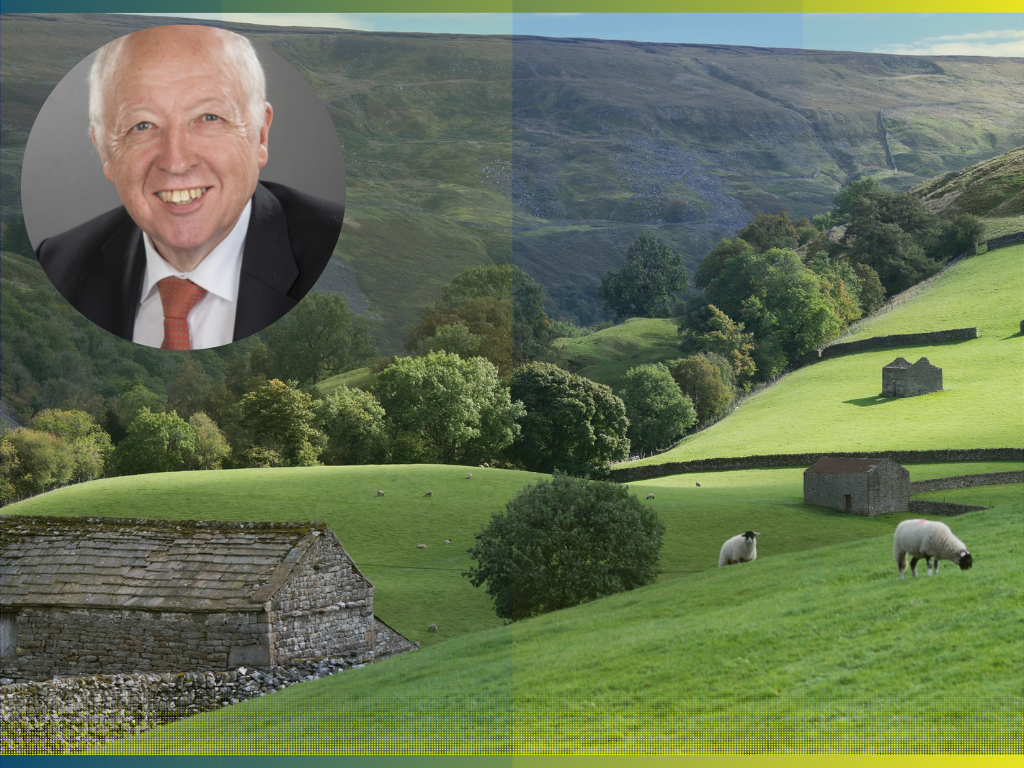
Creating new jobs, tackling climate change and ensuring families can afford to buy their own homes will be key priorities set out in a detailed plan for a new council which will launch in the spring.
Among major issues outlined in a draft Council Plan for the new authority are a need to attract new businesses while developing traditional sectors such as farming and tourism, and ensuring there are the best career opportunities available for young people so they continue to live in North Yorkshire.
More affordable homes, environmentally-friendly projects such as reducing waste and improving public transport and boosting health and well-being are also among the wide-ranging benefits due to be brought about by the new council, which launches on April 1.
Senior councillors on North Yorkshire County Council’s decision-making executive will meet on Tuesday next week (January 24) to discuss the draft plan. It has been drawn up to take into account the thousands of views that were given last year during the biggest public engagements ever undertaken by councils in North Yorkshire.
The leader of North Yorkshire County Council, Cllr Carl Les, who will assume the leadership of the new authority, said: “This plan sets out our vision, ambitions and priorities for North Yorkshire and the approach we are taking to achieve them. We are committed to delivering high-performing and value-for-money services.
“We will encourage more involvement from local people and partners by championing local action and creating opportunities for local communities to come together to identify solutions and develop their own priorities.”
One of the biggest themes for the new council will be how it will serve communities to deliver services ranging from education and highways to waste collection and disposal, planning and economic development.
Residents will be given simpler and easier access to services which will be overseen by a single organisation, instead of the current structure of the county council and seven district and borough authorities. There will also be a single website and phone number for communities to access support and services.
A main office is due to be retained in each area to provide public access to locally-based staff. A network of local access points in towns and villages is also set to be established.
The new council will be launched following the merger of the county council and the seven district and borough authorities to pave the way for a long-awaited devolution deal, with the Government due to hand decision-making powers and millions of pounds in funding to local political leaders.
However, Cllr Les acknowledged the immense financial pressures which the new council will face, with a shortfall of more than £30 million predicted for its first financial year alone. Alongside the highest rate of inflation for 40 years, financial pressures have been compounded nationally by the aftershock of the Covid-19 pandemic as well as the ongoing effects of Britain’s exit from the European Union.
The scale of the new council’s operations will see it have an overall spend of about £1.4 billion, including £343 million on schools, and work will be undertaken on a major strategy to balance the authority’s books.
Cllr Les said: “While the creation of this new unitary authority is an exciting opportunity for North Yorkshire to transform services, drive innovation and improve outcomes, we recognise the significant challenges we face in the years ahead due to the tough fiscal climate and unprecedented demand on services, especially in adult social care and services for children and young people.
“We also recognise that many of the challenges we face cannot be delivered by a single agency alone and as such we will work closely with our local partners, other public sector organisations, businesses, and communities.”
Road improvements detailed in the draft plan include the multi-million pound Kex Gill project to the west of Harrogate, which is set to see the A59 re-routed following a series of landslips in one of the most ambitious projects of its kind ever undertaken in North Yorkshire.
Improving public transport and increasing active travel such as walking and cycling will help to reduce carbon dioxide emissions which lead to climate change, along with increasing recycling rates and reducing the amount of waste sent to landfill. The new council aims to be carbon neutral by 2030.
The affordable homes crisis in North Yorkshire will be alleviated through major house-building projects to help to ensure that families and young people have the opportunity to buy their own homes in the county.
The county has 32,715 micro, small and medium-sized enterprises as well as 90 large businesses, and existing sectors such as farming and tourism will be supported. The draft plan also states skills should be developed for emerging industries including the cyber, bioeconomy and low carbon sectors.
Employment locations are focused on main routes including the A1, the A64 and the M62, with development at Flaxby to the east of Harrogate, an expansion of the Pickering industrial estate and the redevelopment of the sites of the former Kellingley Colliery and Eggborough Power Station.
Sustainable tourism, as well as theatres, museums and galleries, are also set to be promoted.
The draft plan highlights the need to close differences in life expectancy which can be as much as 11 years for men and 13 years for women. Work is due to be undertaken to deliver leisure services, while promoting North Yorkshire’s prized natural environments, including the National Parks covering the Yorkshire Dales and the North York Moors, to improve physical and mental health.
The draft plan includes details for safeguarding both vulnerable adults and children and ensuring the best possible opportunities for almost 83,000 children who attend schools and nurseries, including more than 11,000 pupils with special educational needs or disabilities (SEND).
The public’s views and priorities which were gathered during consultations carried out under the Let’s Talk banner last year on the new council, its budget and a proposed devolution deal for York and North Yorkshire have shaped the draft Council Plan.
If executive members approve the draft Council Plan, it will be considered at a full council meeting next month (February) before it is adopted.


 The Scrap Box Dunnington Fish and Chip Shop Award Nomination
The Scrap Box Dunnington Fish and Chip Shop Award Nomination
 Christmas Miracle Reunites Brothers After 81 Years
Christmas Miracle Reunites Brothers After 81 Years
 Ultra Lux Seats at Vue Cinema at Clifton Moor in York
Ultra Lux Seats at Vue Cinema at Clifton Moor in York
 York Gin Wins 'Glass Champion' Award for Sustainability
York Gin Wins 'Glass Champion' Award for Sustainability
 102 Year Old Receives Surprise Message from Dance Star
102 Year Old Receives Surprise Message from Dance Star










